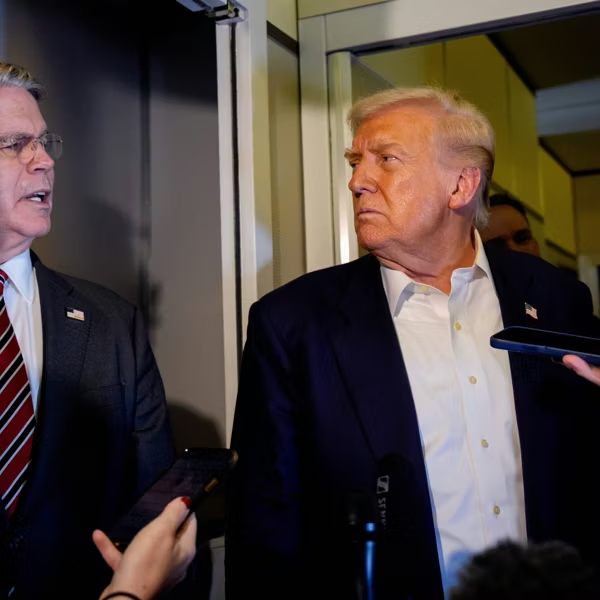The U.S. Supreme Court on Monday delivered another blow to Donald Trump's efforts to block the enforcement of a subpoena for his accounting firm to turn over eight years of the ex-president's tax returns and other financial documents to a grand jury convened by Manhattan District Attorney Cy Vance Jr. while Trump was still in office.
Vance welcomed the high court's unsigned, one-sentence order in a short statement: "The work continues."
Ryan Thomas, a spokesperson for the progressive advocacy group Stand Up America, also celebrated the decision, saying that "Trump's shameful effort to block his financial records from investigators is yet another reminder of the lengths he's gone to to avoid accountability."
"This decisive defeat once again shows that no one--including Donald Trump--is above the law," added Thomas. "Trump must be held accountable by state and federal prosecutors for his criminal conduct."
While Vance's probe involves hush-money payments to women who said they had affairs with Trump, recent court filings suggest the investigation could also include tax and insurance fraud as well as falsifying business records.
As NBC News explained Monday:
Now that the Supreme Court has cleared the way for Vance to enforce the subpoena, the president has exhausted his legal options to block it. The full tax return documents, or portions of them, would become public only if Vance brings criminal charges at some future date and seeks to introduce them as evidence.
Vance in 2019 issued a subpoena to Trump's accounting firm, Mazars USA, for his tax returns from 2011 to 2018. Federal lawmakers also sought the then-president's tax returns--which he refused to make public before or during his four-year term, bucking a precedent followed by several of his predecessors.
Last July, the Supreme Court ruled that Vance could enforce the subpoena but blocked Congress from obtaining the financial records. In both 7-2 decisions, Trump appointees Justices Neil Gorsuch and Brett Kavanaugh joined the majority while Justices Clarence Thomas and Samuel Alito dissented. Those rulings preceded the September death of Justice Ruth Bader Ginsburg and Trump's appointment of Justice Amy Coney Barrett, confirmed by a GOP-controlled Senate in October.
After the justices rejected claims by Trump's attorneys that he was immune from state investigations while serving as president, his legal team tried to argue that the subpoena was issued "in bad faith" and amounted to political "harassment"--a position rejected by a U.S. district judge in August, a federal appeals panel in October, and now the nation's highest court.
The appeals panel's decision came shortly after the New York Times began publishing a damning series of reports based on over two decades of Trump's tax documents obtained by the newspaper. The twice-impeached former president currently faces not only Vance's investigation but also probes by the New York attorney general's office into his business empire and a Georgia prosecutor regarding election interference.




